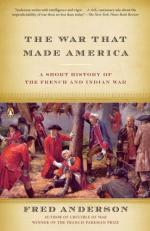|
This section contains 1,109 words (approx. 4 pages at 300 words per page) |

|
Accepted Policy.
In the eighteenth century Britain's trade and navigation laws reflected the mercantilist theory that a colony's main function was to be a source of raw materials for the mother country and a market for its manufactured goods. These advantages were meant to benefit the mother country and were denied to all foreign commercial rivals. Trade was conducted on British or colonial ships, and commerce between the colonies and non-British ports was limited to specific types of goods. Import duties were designed primarily to complement these trade objectives as well as to raise revenue.
Evasion.
Smuggling of foreign products into the colonies, in order to get needed goods or to avoid having to pay the import taxes, had long been a common practice and was almost respectable. The laws had not been tightly enforced, and some colonists, John Hancock among them, had...
|
This section contains 1,109 words (approx. 4 pages at 300 words per page) |

|




